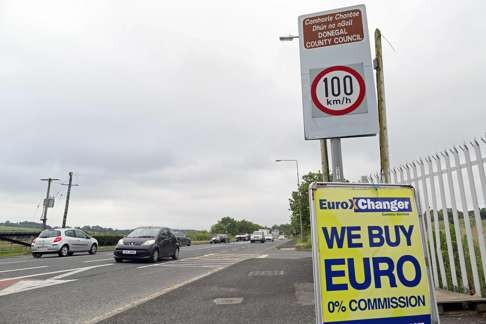
Emerging Asia has managed to avoid serious pain related to Brexit, but that could change
If confidence in monetary policy unravels, crisis would rip across global markets wiping out relative safe-havens
On Wednesday, the British pound fell to a fresh 31-year low as the financial fallout from the UK’s decision to leave the European Union (EU) intensified, with several leading British real estate funds halting redemptions amid a plunge in property stocks.
Sterling has now lost a staggering 13.5 per cent against the US dollar since June 23, the day of the UK referendum, and is expected to decline further amid mounting uncertainty about the consequences of the Brexit vote, particularly whether London - the world’s leading financial centre - will retain access to the European single market.
The spillover effects of the vote have also put Italy’s banking sector, which is burdened by a dangerously high level of non-performing loans (NPLs), under further strain and pushed down the yield on the benchmark 10-year US Treasury bond to a historic low of 1.3 per cent. Investors fear that a Brexit will weaken an already fragile eurozone economy and potentially trigger a recession in the US.
Yet amid the increased signs of stress in the financial markets of advanced economies, sentiment towards emerging markets (EMs) is holding up relatively well.
Some prominent asset managers, like Ashmore and Amundi, are even suggesting that some EMs look safer than certain countries in the developed world following Britain’s decision to leave the EU.
JPMorgan notes that the immediate reaction to the Brexit vote in developing economies was fairly muted. “Day 1 after the Brexit vote turned into an average day of weaker EM market moves despite the surprise outcome,” the bank’s analysts said.

The MSCI EM Index, a leading gauge of equity markets in developing economies, stands more or less at the same level as it did just before the results of the UK referendum were announced. This compares with a 9 per cent decline in eurozone stocks (the FTSE 100, the main UK share index, is up 3 per cent because of the beneficial effects of the collapse in sterling for the country’s exporters). Italian and Spanish equities have fallen 14 per cent and 12 per cent respectively.
Some of the most vulnerable EM currencies, moreover, have proved fairly resilient to the Brexit vote. The Brazilian real has barely budged against the dollar since June 23 while the Turkish lira and the South African rand have only lost 3 per cent in stark contrast to the much sharper falls in EM currencies in the days and weeks following the decision by the US Federal Reserve in late May 2013 to wind down its programme of quantitative easing.
Even Russia, whose economy was tipped into recession by the collapse in oil prices and the imposition of a harsh western sanctions regime in response to its annexation of Crimea in 2014, is issuing corporate bonds in international markets. Several Russian steelmakers and shipping groups issued Eurobonds last month.
Still, it is far too early to say that EMs are unlikely to suffer from the fallout of a Brexit.
Firstly, these are early days.
Sentiment was already deteriorating this week because of fears about the halt to outflows from UK property funds and the threat of a full-blown banking crisis in Italy. If the Brexit-induced sell-off deepens - which is increasingly likely - and a major Italian bank collapses, EM assets will come under more severe strain.
The region to watch is central and eastern Europe whose financial markets are closely correlated to those of the eurozone and whose economies have the strongest trade links with the UK. The zloty, Poland’s currency, has already lost 5 per cent against the dollar since June 23, although partly due to idiosyncratic factors.
Yet it is the Mexican peso that is bearing the brunt of the Brexit-fuelled nervousness in EMs. As the most liquid (or actively traded) EM currency, the peso acts as a hedge against all sorts of risks in the global economy - particularly the threat of the Mexican-bashing Donald Trump, the presumptive Republican presidential candidate, winning the US election in November. The peso fell 5 per cent against the dollar in the first two trading days after the referendum, but has since recovered somewhat.
Emerging Asia, meanwhile, is better placed to cope with a further Brexit-induced deterioration in sentiment because of its negligible trade and financial linkages with the UK.
Yet if the Brexit vote ends up amplifying other risks in the global economy, particularly persistent concerns about China, then emerging Asian assets could also come under more pressure.
The biggest risk is that the fallout from the UK’s decision to leave the EU further undermines confidence in monetary policy at a time when investors are looking to central banks to help stabilise markets.
If this happens, then there will be little talk of EMs as relative safe havens.
Nicholas Spiro is a partner with Lauressa Advisory

